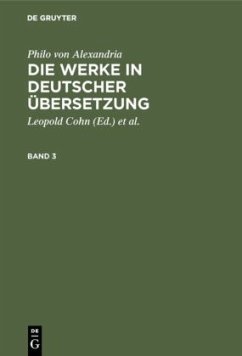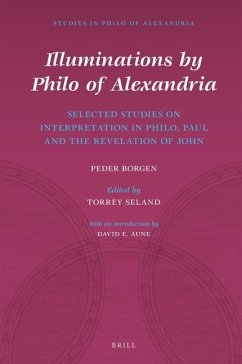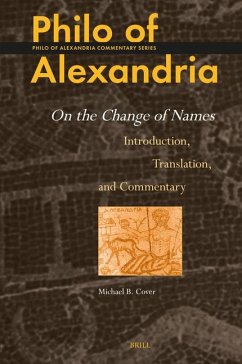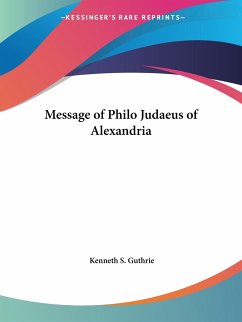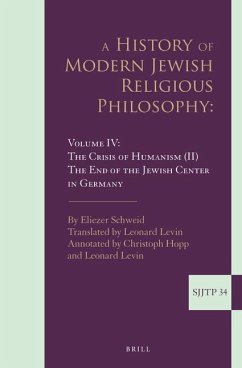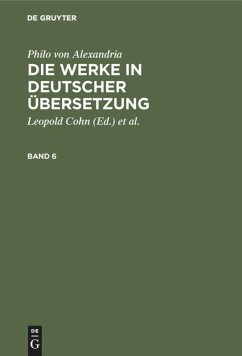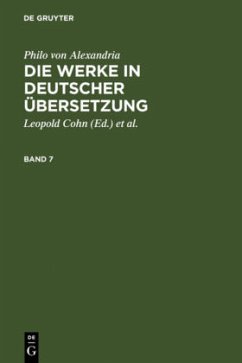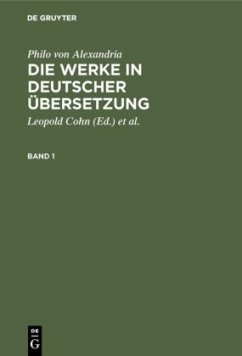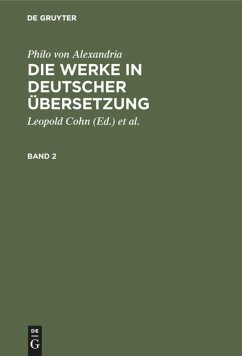
Philo of Alexandria: Every Good Man Is Free
Introduction, Translation, and Commentary
Versandkostenfrei!
Erscheint vorauss. 18. März 2026
253,99 €
inkl. MwSt.

PAYBACK Punkte
127 °P sammeln!
Philo's treatise on freedom is the first extant exposition of the topic, which became neuralgic in the first century CE. Philosophical, historical, literary and exegetical aspects are explored. The Essenes are presented as an exemplary group of free individuals, who reject slavery and study Torah on the Sabbath. In this first commentary on the treatise, Philo's thought is explained in the context of the circumstances in which it was written, namely in the aftermath of the Alexandrian pogrom in 38 CE, when he served as the head of the Jewish embassy in Rome. The main contemporary figures are in...
Philo's treatise on freedom is the first extant exposition of the topic, which became neuralgic in the first century CE. Philosophical, historical, literary and exegetical aspects are explored. The Essenes are presented as an exemplary group of free individuals, who reject slavery and study Torah on the Sabbath. In this first commentary on the treatise, Philo's thought is explained in the context of the circumstances in which it was written, namely in the aftermath of the Alexandrian pogrom in 38 CE, when he served as the head of the Jewish embassy in Rome. The main contemporary figures are introduced and Philo's role in the debates of first century Rome is highlighted. Special attention is paid to Cynic philosophy, which prized individual freedom and saw a revival in Rome that is otherwise attested only fragmentarily. Philo's treatise emerges as a precious source, which illuminates subsequent advocates of freedom, such as Paul and Epictetus.



